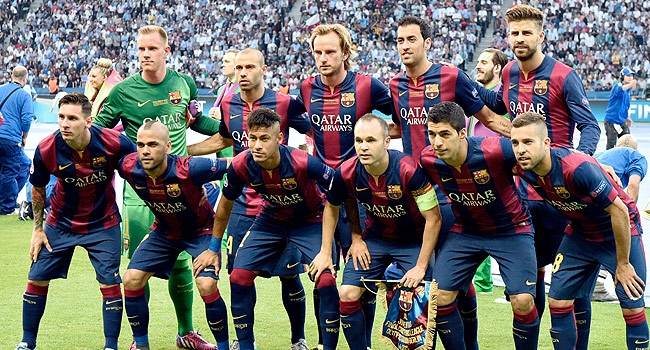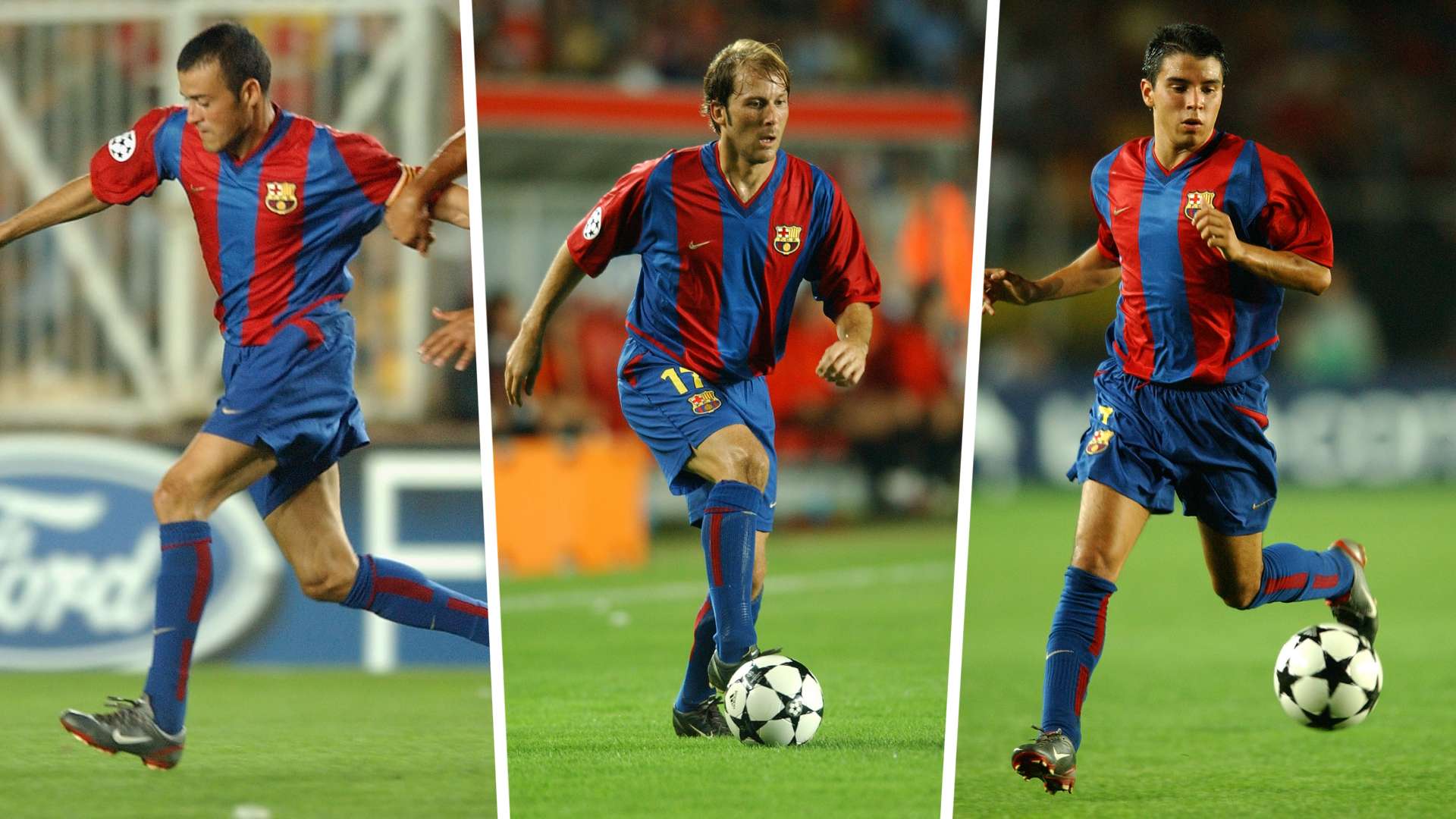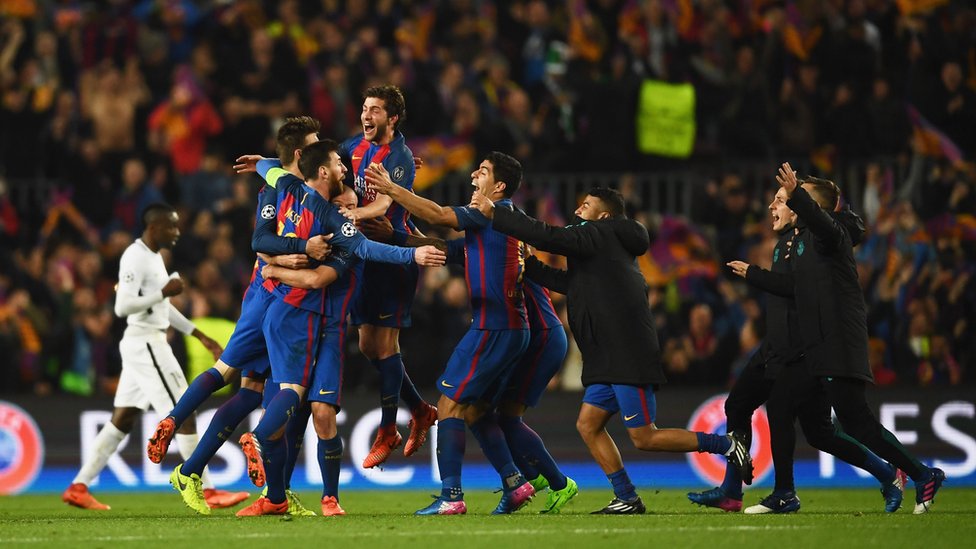FC Barcelona: A Legacy of Excellence
FC Barcelona: A Legacy of Excellence

FC Barcelona, often simply referred to as Barça, is not just a football club; it is a symbol of Catalan identity, sporting excellence, and a bastion of footballing philosophy. With a rich history dating back over a century, Barcelona has established itself as one of the most iconic and successful clubs in the world. In this comprehensive exploration, we will delve into the origins, evolution, triumphs, and challenges of FC Barcelona, tracing its journey from humble beginnings to global prominence.
Founding and Early Years
FC Barcelona was founded on November 29, 1899, by a group of Swiss, English, and Catalan football enthusiasts led by Joan Gamper. The club's inception coincided with a period of growing interest in football in Catalonia, as the sport gained popularity among the region's urban population. From its earliest days, Barcelona was more than just a football club; it served as a focal point for Catalan culture and identity, with its blue and claret colors symbolizing the pride and resilience of the Catalan people.
In its formative years, Barcelona faced numerous challenges, both on and off the field. Financial difficulties, limited resources, and political unrest in Spain posed significant obstacles to the club's growth. However, Barcelona's unwavering spirit and commitment to its principles helped it overcome these challenges and emerge as a symbol of resilience and defiance.
The Arrival of Johan Cruyff and the Birth of the Dream Team
One of the most transformative periods in Barcelona's history occurred in the late 1980s with the arrival of Dutch footballing legend Johan Cruyff. Appointed as the club's manager in 1988, Cruyff introduced a revolutionary style of play known as "Total Football," which emphasized possession, movement, and creativity. Under Cruyff's guidance, Barcelona experienced unprecedented success, winning four consecutive La Liga titles from 1991 to 1994 and capturing the club's first-ever European Cup in 1992.
Central to Barcelona's success during this period was the legendary "Dream Team," a collection of world-class players such as Ronald Koeman, Pep Guardiola, and Hristo Stoichkov, who epitomized Cruyff's vision of footballing excellence. The Dream Team's style of play, characterized by fluid passing, intricate movement, and attacking flair, captured the imagination of football fans worldwide and cemented Barcelona's reputation as a global powerhouse./origin-imgresizer.eurosport.com/2013/08/16/1075966-18810774-2560-1440.jpg)
The Era of Pep Guardiola and Tiki-Taka
Building on the foundation laid by Cruyff, Barcelona experienced another golden age in the late 2000s under the leadership of former player and coach Pep Guardiola. Guardiola's tenure as manager, which began in 2008, coincided with a period of unprecedented success for the club, as Barcelona won an unprecedented sextuple of trophies in the 2008-2009 season, including the UEFA Champions League, La Liga, and the Copa del Rey.
Central to Barcelona's dominance during this period was the implementation of the tiki-taka style of play, a possession-based approach characterized by quick, short passes and constant movement off the ball. Led by midfield maestros such as Xavi Hernández, Andrés Iniesta, and Lionel Messi, Barcelona mesmerized opponents with their intricate passing patterns and collective brilliance, earning plaudits as one of the greatest teams in football history.
Challenges and Renewal
Despite its success on the field, Barcelona has faced its fair share of challenges and controversies over the years. Financial instability, boardroom infighting, and allegations of corruption have threatened to undermine the club's reputation and stability. In recent years, Barcelona has grappled with the departure of key players, an aging squad, and a lack of strategic planning, leading to a decline in on-field performance and a sense of uncertainty about the club's future direction.
However, amid the challenges and setbacks, Barcelona remains a symbol of resilience, innovation, and excellence. The club's commitment to its values, traditions, and philosophy continues to inspire generations of fans around the world, reinforcing its status as more than just a football club, but a cultural institution and a source of pride for the Catalan people.
The Future of FC Barcelona
As Barcelona looks ahead to the future, it faces a period of transition and renewal. With new leadership, strategic planning, and a commitment to youth development, the club has the opportunity to revitalize its identity and reclaim its status as a dominant force in world football. The legacy of FC Barcelona is built on a foundation of passion, innovation, and a commitment to excellence, ensuring that its impact on the world of football will endure for generations to come.
References
- "Barcelona find new home at Estadi Olimpic Lluis Companys". FIFA. 17 August 2023. Archived from the original on 23 September 2023. Retrieved 23 September 2023.
- ^ "Més que un club: UNA DIVISA HISTÒRICA". FC Barcelona (in Catalan). Archived from the original on 10 January 2014. Retrieved 25 February 2024.
- ^ Ozanian, Mike; Teitelbaum, Justin (31 May 2023). "World's Most Valuable Soccer Teams 2023". Forbes. Archived from the original on 31 May 2023. Retrieved 1 July 2023.
- ^ "Deloitte Football Money League 2024". Deloitte. February 2024. Archived from the original on 20 January 2017. Retrieved 9 February 2024.
- ^ "The history of the Barça anthems". FC Barcelona. Archived from the original on 3 October 2017. Retrieved 24 September 2017.
- ^ "Football Europe: FC Barcelona". UEFA. Archived from the original on 3 June 2010. Retrieved 4 May 2009.
- ^ "Classic Football: Clubs: FC Barcelona". FIFA.com. Fédération Internationale de Football Association. Archived from the original on 29 April 2015. Retrieved 29 April 2015.
- ^ Rimet, Pierre (4 January 1951). Rodrigues Filho, Mário (ed.). "Cartas de Paris - Das pirâmides do Egito ao colosso do Maracanã, com o Sr. Jules Rimet" [Letters from Paris - From the pyramids of Egypt to the colossus of Maracanã, with Mr. Jules Rimet]. Jornal dos Sports (in Portuguese). No. 6554. Rio de Janeiro, Brazil. p. 5. Archived from the original on 6 June 2020. Retrieved 2 June 2017. A Taça Latina é uma competição criada pela F. I. F. A. a pedido dos quatro países que a disputam atualmente. Mas o Regulamento é feito por uma Comissão composta por membros das Federações concorrentes e de fato a F. I. F. A. não participa ativamente na organização
- ^ "Former Results". International Federation of Football History & Statistics. Archived from the original on 15 June 2018. Retrieved 16 December 2014.
- ^ "Club World Ranking 2015". International Federation of Football History & Statistics. Archived from the original on 11 August 2019. Retrieved 7 January 2015.


































